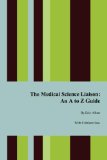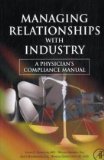How to prepare for a career as a medical science liaison
Medical Science Liaison jobs are often seen as the “Golden Ticket” for advanced degree holders looking at career options in the pharmaceutical industry. The thought of receiving a six-figure salary to travel from place to place discussing the latest scientific research is incredibly alluring, and many PhDs and postdocs see the skill sets required as a “perfect match” for their own experiences carrying out research and making presentations. But for most, MSL jobs remain out of reach, because they don’t think carefully about what the industry is looking for in applicants.
Approximately 80% of Medical Science Liaisons hold advanced degrees (PhD, PharmD or MD). Companies prefer to hire people with these degrees because they are seen as more credible when discussing scientific research, and because their advanced training gives them a kind of parity with the doctors they work with. If you don’t have an advanced degree, your chances of landing an MSL job are very limited, and if you do, it almost certainly won’t be your first pharma job. In your position, I would recommend approaching these MSL jobs laterally, by succeeding as a medical sales representative and switching over to the more consultative MSL role after proving yourself.
If you hold a PharmD or MD, you don’t have the same hurdles to jump as PhDs, who may be perceived as too narrowly focused and insufficiently patient-centred. Instead, you simply need to continue developing your presentation skills and knowledge of the clinical trials process. Communication skills are the #1 challenge that limits the success of internationally-trained MDs in applying for MSL roles. If you think this might be the case for you, consider investing in an accent-reduction training program.
The remainder of this article will be most useful to those who are at the beginning or midway through a postgraduate program (PhD or possibly postdoc) in the life sciences.
1. Focus on human health. The most important thing for PhDs to remember when thinking about a career as a medical science liaison is that pharmaceutical companies are in the business of marketing drugs used as therapeutic treatments for human disease. Pharmaceutical research is patient-centred, and clinical results are what matters most. If you’re like most PhDs, you probably aren’t used to thinking about your work in this perspective. If you want to succeed in a pharmaceutical career, you need to change your thinking. You need to reconsider and reevaluate your studies from this new perspective. Instead of thinking about your research in terms of a particular assay or model system, you should begin thinking about your work in the context of medical care and the potential impact on patients.
2. Choose a Therapeutic Area. As a Medical Science Liaison, you will be expected to have expertise in a particular field, in particular a comprehensive knowledge of a specific portfolio of drugs and their competitors. From a market perspective, the most important therapeutic areas are Cardiovascular, CNS, Oncology, Anti-infectives, Musculoskeletal/Pain, Metabolism, Gastrointestinal, and Respiratory. Of course there is a market for therapeutics, and MSLs, in other therapeutic areas as well (Dermatology, Genitourinary, Haematology, Ophthalmology, Vaccines, Transplant etc.) but the bigger markets may offer more opportunities. If you can’t easily relate your research to a human disease, then you should think about what you would need to do to shift your work in that direction. If you’re nearing the end of your PhD and/or can’t figure out how to shift the focus of your current research, it might be worthwhile to consider a short post-doc in a more clinically-focused lab before pursuing your MSL career.
3. Become an Expert. As much as possible, you should fulfil your course requirements and choose electives by taking classes that have a clinical, human-health focus in your therapeutic area. If possible, take courses offered by your university’s medical or pharmacy programs, and do your best to attend any industry-sponsored events — especially medical education seminars and workshops. Learn all you can about the top drugs in your therapeutic area and keep abreast of new clinical research. You might consider starting a blog to track this research, both as a learning tool and as a concrete demonstration of your passion for the subject that you can point to in an interview.
4. Present at the Right Conferences. Take advantage of opportunities to attend and present your research at conferences. Choose your conferences wisely! You should focus your attention on conferences where your audience will include a significant contingent of clinical researchers and medical doctors. The title, abstract and content of your presentation should be designed to reflect the linkages between your work and human health. Make a point of attending talks about industry-sponsored research, and any presentations relating to drugs in your therapeutic area. Consider joining Toastmasters or another public-speaking club to develop your skills and show your comfort in making presentations.
5. Network. Just being able to name the top clinical researchers in a therapeutic area can set you apart from the competition in an Medical Science Liaison interview. If you actually have a professional relationship with them, you’ll be head and shoulders above the rest. After attending presentations, seek out the speakers afterwards, introduce yourself and then follow up by email later, and strive to stay in touch through a genuine interest in their work. Similarly, use email to make contact with clinical researchers at other institutions whose work you have appreciated. If there are top clinical researchers in your therapeutic area at your university or at institutions in your area, you should follow their work closely. Attend their presentations, seminars and classes, ask follow-up questions, share your own data if it’s appropriate, and try to build a professional relationship of mutual respect. In time, you may even be able to ask them to introduce you to their contacts in industry.
6. Learn about Clinical Trials. A big part of an MSL’s job is working with doctors to help them develop their own investigator-initiated clinical trials. As soon as a company applies for permission to market a drug, any clinical research on that drug that is not conducted in line with the approved product label is called Phase IIIB research. These may be comparative efficacy studies against other drugs on the market, observational studies of different treatment regimens, or studies that investigate the use of an approved drug for an “off-label” use, e.g. using a medication approved for treating seizures as an experimental treatment for migraine sufferers. Phase IV research, on the other hand, investigates the use of products in the approved fashion, and usually collect observational data on treatment outcomes over a long period of time. An exceptionally good guidebook to understanding phase IIIB and phase IV research is Strategic Research, by Hugo Stephenson of Quintiles. It’s very well-written, a pleasure to read and very informative. Unfortunately it’s also out of print, but you should look for a used copy!
If you follow these guidelines, you’ll have done a lot to set yourself up for success in landing the Medical Science Liaison job of your dreams. To finish up, here are two other reference books that may be helpful to you along the way.
As an MSL, you sometimes walk a fine line between supporting research, providing education, and promotion. Understanding the ethical and legal aspects of drug promotion is very important for MSLs because promoting off-label usage of drugs is illegal.
Managing Relationships with Industry is a guidebook for physicians, but it could also be useful for MSLs and sales representatives from industry to learn how to work ethically and effectively with medical professionals in a shared goal of providing better patient care. Understanding how the physicians who are your ‘clients’ view your role can help you become a better consultant to them.
 The Medical Science Liaison A-Z Guide looks like an excellent, comprehensive guide to managing a career as an MSL. I have only read a sample chapter but what I’ve seen looks well-written and trustworthy. A reviewer on the Student Doctor Network forums describes it as a “great read”. It includes a chapter on “Getting Hired” which will no doubt be of great interest to readers of this blog.
The Medical Science Liaison A-Z Guide looks like an excellent, comprehensive guide to managing a career as an MSL. I have only read a sample chapter but what I’ve seen looks well-written and trustworthy. A reviewer on the Student Doctor Network forums describes it as a “great read”. It includes a chapter on “Getting Hired” which will no doubt be of great interest to readers of this blog.
Finally, Bridging Scientific Knowledge, by Susan Malecha, presents a brief but focused overview of the Medical Science Liaison role. Susan was also a contributor to the A-Z Guide mentioned above.
Posted: February 8th, 2009 | Author: Headhunter | Filed under: Marketing, Medical Science Liaisons, networking, Resources | Tags: Medical Affairs, Medical Science Liaison, MSL, networking, Phase IIIB, Phase IV, PhD, Scientific Development Associate | 11 Comments »






[…] my post the other day on preparing for an MSL career, Jane Chin of the MSL Institute drew my attention to a […]
Great article but I have a question.
For us who are finishing out Ph.D. and do not want to continue working at the bench and want to pursue a MSL career, we need clinical experience. Do you think it wise to pursue a position as a clinical research associate or other clinical monitoring job to better understand/market ourselves with regulatory/clinical experience? If not a CRA do you suggest something else?
Thanks
No, I don’t. I tried to do that when I graduated in 2009 and it went abismally. The hiring managers will alternately say you are overqualified (because the job only requires a bachelors, if that) or underqualified (because you don’t know anything about clinical trials). I decided to tackle this by taking a postdoc and enrolling in a clinical research trails associate program at a local community college. It really is a different set of knowledge then being at the bench or even particpating as a researcher in (pre)clinical work. Hope this helps!
Great article. However, can you comment on the typical career path of an MSL after they have gained a number of years experience in the field?
That’s a great question Michael. MSLs can have some interesting options for future career development because of the way their role bridges the gap between clinical science and marketing. Some MSLs may choose to focus on the clinical side, becoming strategic Medical Advisors, Medical Affairs directors, or directors of Clinical Operations. Others may choose to focus more on the marketing side, moving into management roles overseeing sales teams or marketing decisions.
What is a typical day or week for a medical liason?
I have a Pharm.D from US but no experience. I just graduated 6 months ago. Is there a possibility I can gt hired as a MSL without any experience?
What is a typical day or week for a medical liason?
How qualified would be an MD with finished residency in ophthalmology?
Following a graduate and postdoc training in oncology research, would a position in clinical development with a pharmaceutical CRO (ie, medical writing, regulatory affairs, strategic planning, etc.) be useful experience and advantageous for landing an MSL role?
What about a life science-related masters degree? Does that give you a leg up?
I am a qualified medical doctor with voluntary clinical experience.No MSL exposure.
How do I get to become a MSL?
I have done many short medical courses.
NO HPCSA REGISTRATION